LŠSS classes are taught by members of the Institute of Czech and Deaf Studies along with the academic staff and PhD students from Charles University’s Faculty of Arts, and long-term partners of the CU FA Institute of Czech and Deaf Studies who teach classes within the Czech Studies courses and courses for foreign students at CU FA.
Adamovičová Ana
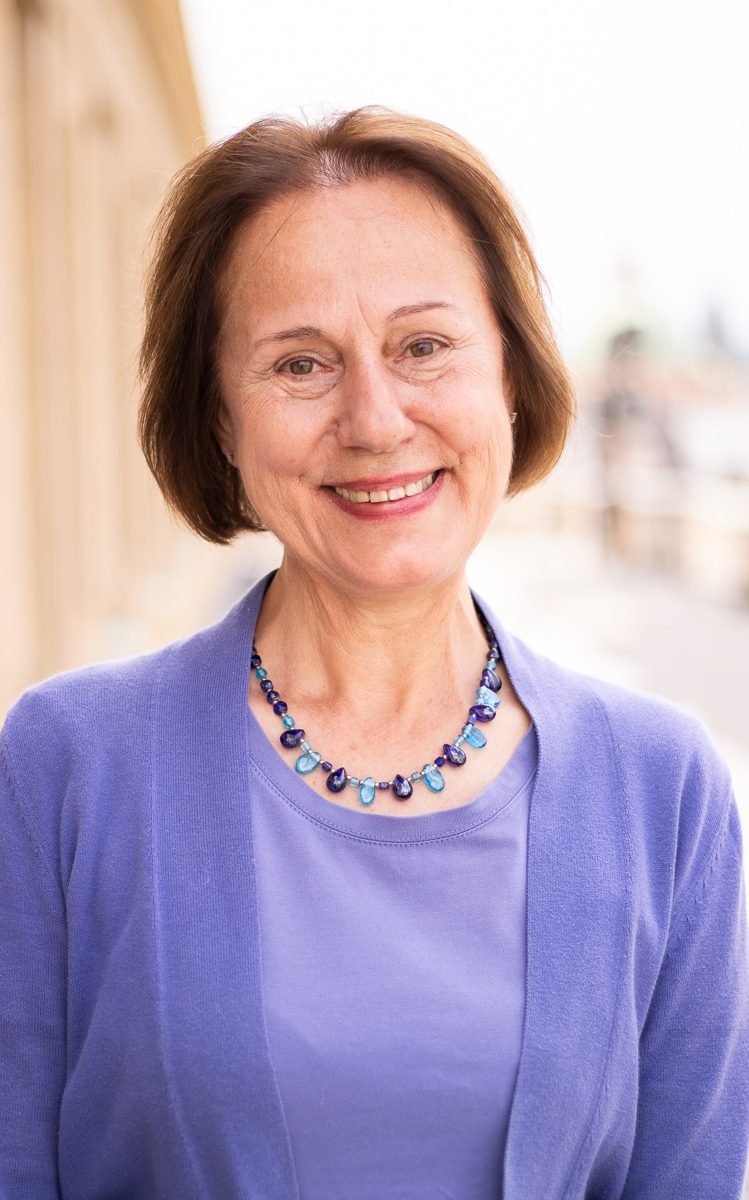
Why do I teach Czech for foreigners?
I teach Czech to foreigners because I enjoy working with people from different cultures, and I also see how language helps them move forward. I like the Czech language and I enjoy explaining it in a way that makes sense even to someone who’s never heard it before. It’s a meaningful job – it opens new doors for people and sometimes helps them start a new life in a new country.
Why am I at the Summer School?
I teach at the Summer School because I enjoy the intensive work with motivated students from different countries. The Summer School is not just about teaching language, but also about culture, sharing, and human connections. It’s an inspiring environment for me, where I also learn.
How will you recognize me at the Summer School?
Hopefully, by the fact that I look forward every day to meeting kind students.
Bergerová Marie

At last year’s Summer School still as Maruška Štěpánová – a native of the region of Němcová, the Čapeks, and Jirásek; cellist, scout, castle guide, alto singer, lecturer at the Third Faculty of Medicine at Charles University and at the Czech University of Life Sciences in Prague; cycling pilgrim; lover of wandering through the countryside as well as cultural landmarks; collector of stories from elderly witnesses; and a regular visitor of Czech expatriate communities around the world…
Why do I teach Czech for foreigners?
I really enjoy traveling the world and discovering different cultures. But through teaching Czech to foreigners, I can explore the whole world right here at home in Prague – directly in my own classroom! As a proud Czech, I also truly enjoy promoting our language and rich culture to people who are only just beginning to get a taste of them.
Why am I at the Summer School?
What continues to fulfill and enchant me – aside from teaching – are the various informal activities with students, the international dimension of the event, the friendly atmosphere, the relaxed summer vibe, and above all, the motivated students from all over the world who give up their summer to come and learn our beautiful (but difficult) language…
How will you recognize me at the Summer School?
By the smile and song on my lips – and a nicely round belly (as I carry a new little future Bohemist under my heart).
Červeňáková Hana
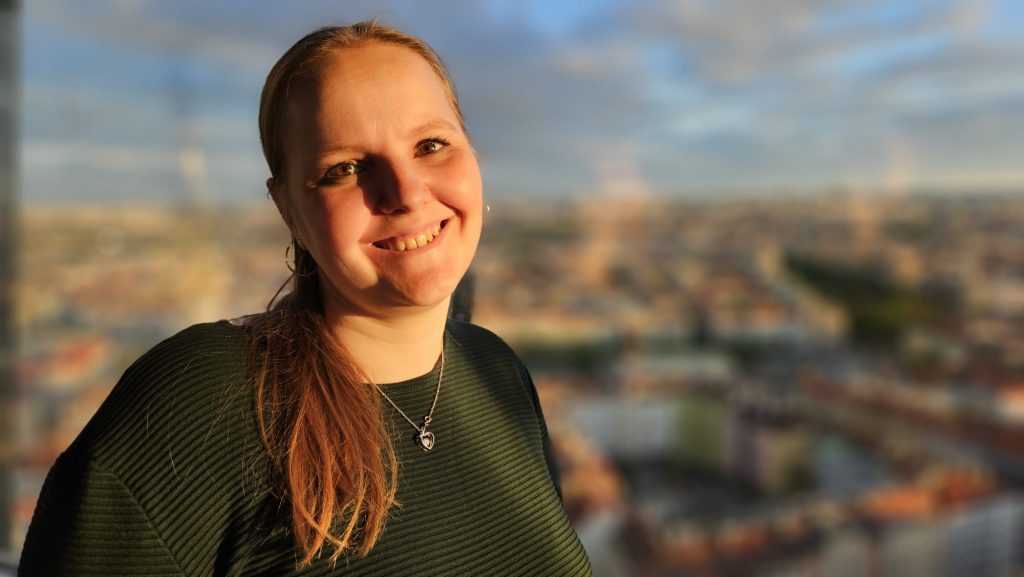
Why do I teach Czech for foreigners?
I started teaching Czech to foreigners by chance, but quickly realized that I had found my passion. I enjoy the language, working with people, and learning something new every day.
Why am I at Summer School?
I have been a part of LŠSS since 2019 and I view it as a great summer camp in the heart of Prague. I always enjoy the lessons, evening events, and trips.
How will you recognize me at Summer School?
You will recognize me by the colorful backpack in which I carry almost everything.
Diringerová Hana
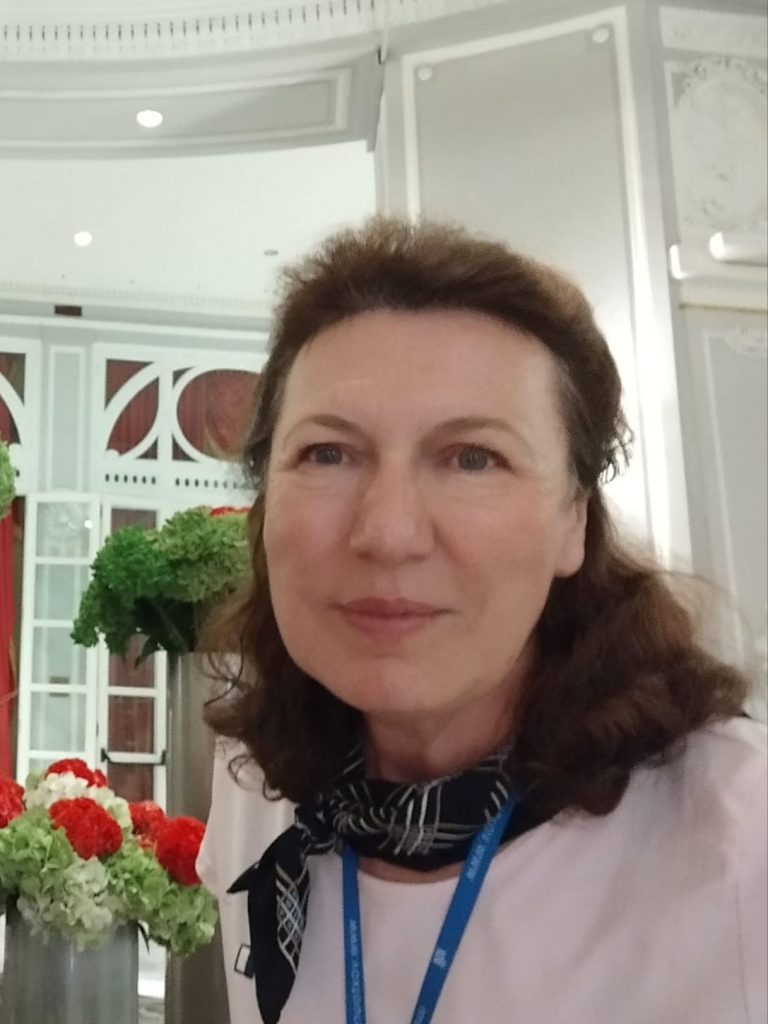
Why do I teach Czech for foreigners?
Teaching Czech to foreigners is an adventure for me. Students will learn to discover its beauties and pitfalls with me. I’ll be happy to be your guide through this amazing jungle.
Why am I at Summer School?
Summer School is an exceptional Czech phenomenon, with a welcoming atmosphere, old and new friends, it’s an annual inspiration for the field of Czech as a foreign language. This is my twenty-eighth summer spent with the Czech language!
How will you recognize me at the Summer School?
A smile on my face, a thermos of coffee in my hand and lots of ideas in my head on how to enjoy the day!
Hasil Jiří
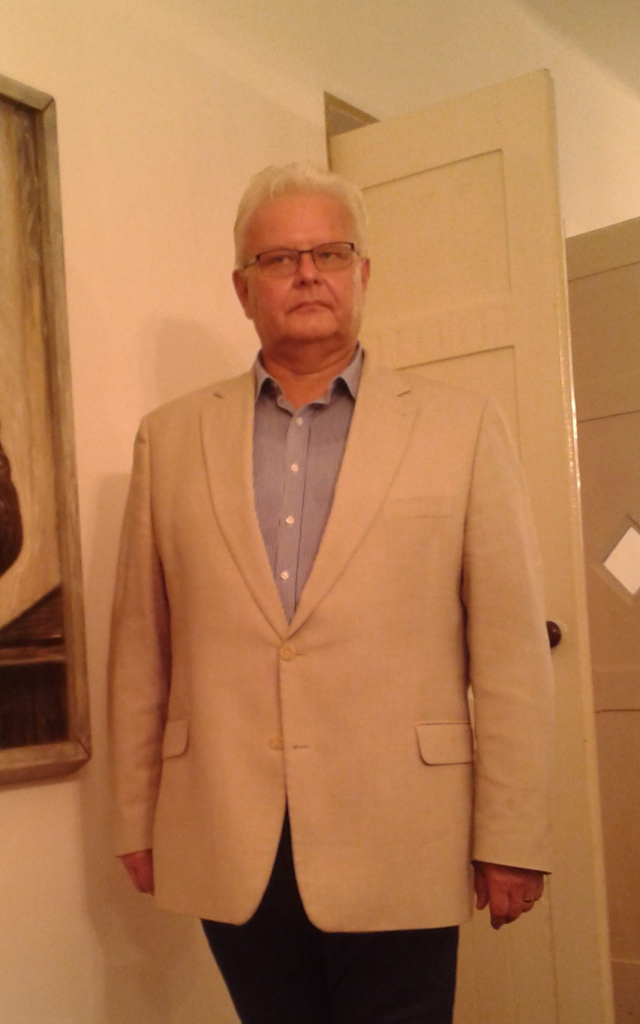
Jiří Hasil has taught Czech to native and non-native speakers alike for a long time. He is interested in language didactics, particularly in the relationship between culture, history, and language. His other interests include history, especially the 19th and 20th centuries, Czech morphology, and language cultivation theory. His first experience with LŠSS came in its 22nd year in 1978 when he worked there as a community interpreter. Since then, he has held several positions at LŠSS (director in 2009–2016). He likes to spend time in his home in the country near Prague and only very reluctantly leaves its peaceful environment. He never leaves his house without his ID, driver’s license, and house keys. He loves history, historical monuments, music, theatre, and especially opera. He loves his family, too. The older he gets, the more morose he is and the more he loves his granddaughter.
Hejlová Hana
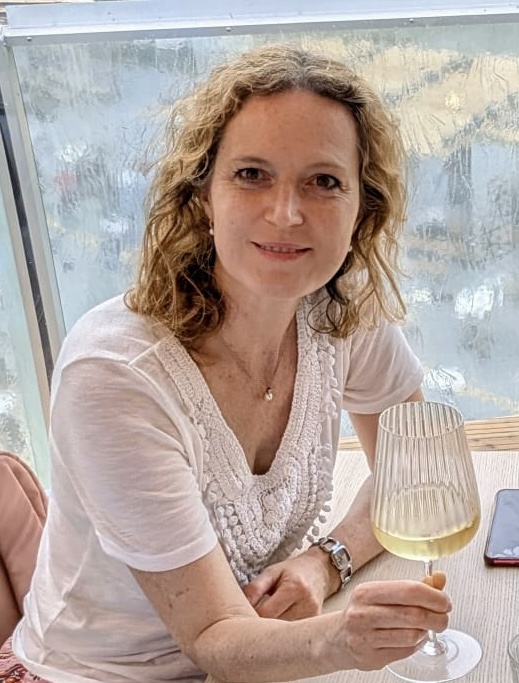
Why do I teach Czech for foreigners?
Because Czech for foreigners combines my love of languages and travel with getting to know new people and cultures. Students often come to the course with the idea that Czech is primarily about complex grammar, demanding pronunciation and a lot of hard work. I’m glad when I can show them that learning Czech can be enjoyable, fun and inspiring and when they leave with a desire to continue studying Czech.
Why am I at Summer School?
I have been spending summers at Summer School for more than 25 years and can no longer imagine summer without this month-long camp in the city for those who study and love the Czech language. Great colleagues, inspiring students from dozens of countries around the world, trips together exploring summertime Prague, and all of it is a little bit the same and also completely different each time.
How will you recognize me at Summer School?
I will be standing in the hallway on the third floor most of the day, smiling at you and thinking about if you need anything regarding the lessons or the courses. And you will find me wherever there’s cooking and exercise.
Hrdlička Milan
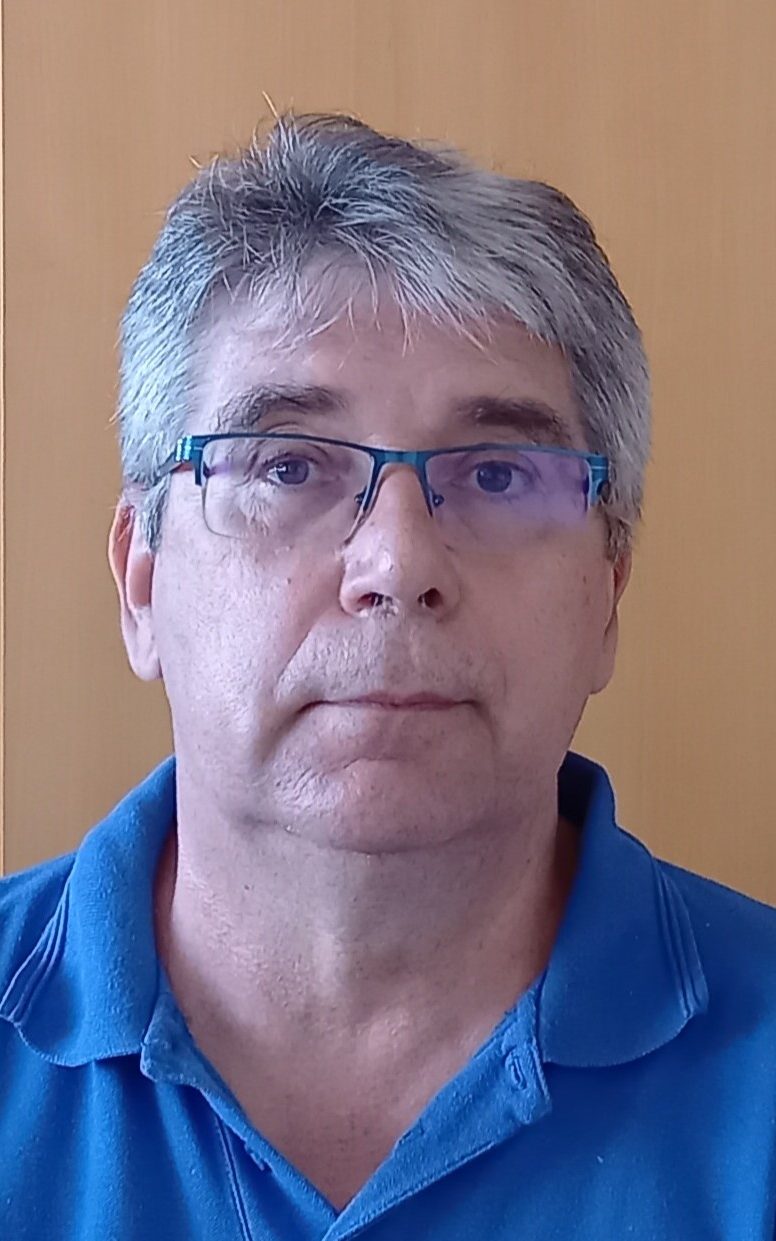
As a Czech scholar and linguodidactician, I deal with linguistic Czech studies, especially the morphology of contemporary Czech, as well as issues of description and presentation of Czech by non-native speakers, and the theory of artistic translation. I currently work at the Institute of Czech and Deaf Studies at the Faculty of Arts, Charles University, and at the Department of Czech Language and Literature at the Faculty of Education, University of West Bohemia in Pilsen. I am the author of a number of studies and dozens of monographs, for example, Czech between languages (Prague: Karolinum 2025), Chapters on didactic grammar (Prague: Karolinum 2023), Chapters on Czech as a non-native language (Prague: Karolinum 2019), General Czech and other stories (Prague: Karolinum 2015), Translation miniatures (Prague: Karolinum 2014), Bohemian miniatures (Prague: Karolinum 2013), etc., and co-author of numerous Czech teaching materials for foreigners.
Why do I teach Czech for foreigners?
I admire the interest, enthusiasm, and curiosity of foreign students of Czech, I appreciate their ability to view the Czech language from a completely different perspective and to ask questions that would hardly come to mind for a native Czech speaker. It is an extremely interesting and uplifting subject, full of challenges and wonderful encounters.
Why am I at Summer School?
To meet new inspiring people. To once again enjoy the wonderful summer school atmosphere after a year. To gain inspiration and energy for my upcoming work.
How will you recognize me at Summer School?
Partly by the photo, perhaps. And then by the red umbrella. And also by the socks in my sandals.
Hudousková Andrea
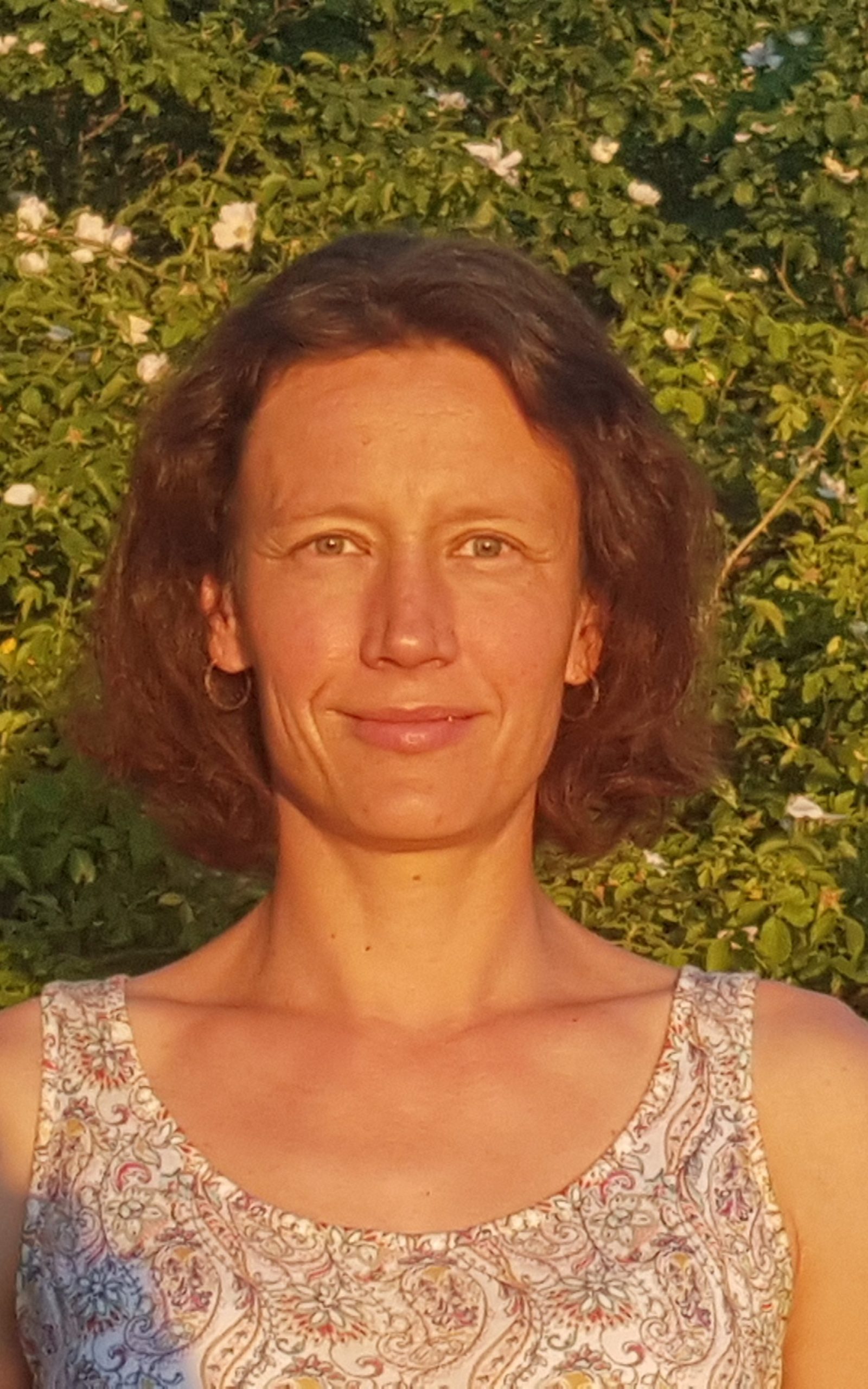
Why do I teach Czech for foreigners?
I have been teaching Czech for foreigners for more than 20 years and I still enjoy it because I learn much more about Czech and Czechs through the eyes of foreigners. Thanks to this, I get to know many cultures that I would not otherwise encounter. And because of this, I have many acquaintances and friends all over the world.
Why am I at Summer School?
Summer school is one of my favorite summer activities, as it includes a lot of fun and, most importantly, great people.
How will you recognize me at Summer School?
By the backpack on my back and the smile on my face.
Huleja Jan
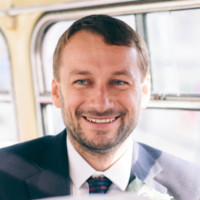
Why do I teach Czech for foreigners?
I love my native language and my homeland. At the same time, I’ve always tried to learn about different countries and cultures. I meet many people from all over the world. In my courses, I introduce them to the Czech language and Czech realia, and at the same time, I learn from them. We exchange our perspectives on the world. It’s reciprocal. It makes my life more colorful and fun.
Why am I at the Summer School?
I’ve been involved in teaching Czech as a foreign language for a long time – in private language schools, state universities and high schools, and also in non-profit organizations. Currently, I work as a lecturer at the Institute of Czech Studies for Foreigners and Communication of the Deaf at the Faculty of Arts, Charles University, with a focus on linguistics and literature. The Summer School is a very pleasant summer return to where it all began for me – back to a language course among students, in the beautiful setting of Prague during the height of summer.
How will you recognize me at the Summer School?
You’ll find me during the second half of LŠSS. I’m usually somewhere near my classroom. If you’d like to get to know me from a more academic perspective, you’re warmly invited to attend my lecture, which will be part of the Summer School program.
Kessler Vojtěch
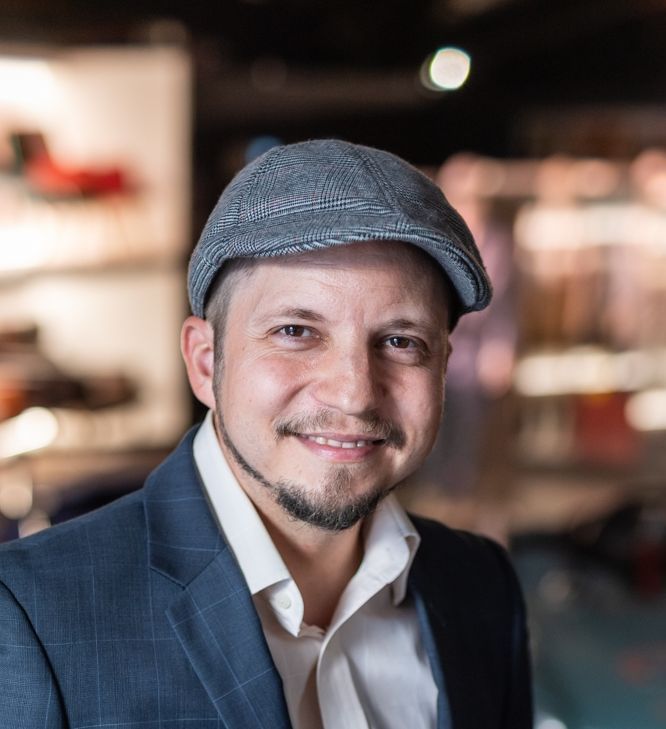
Why do I teach Czech for foreigners?
Because Czech is like beer – it’s bitter at first, but once you get to know it, you don’t want anything else.
Why am I at Summer School
Because I enjoy it when someone says the tongue-twister “strč prst skrz krk” and survives.
How will you recognize me at the Summer School?
I’ll be the one who explains to you why you should wear socks with sandals and that a “chlebíček” is not a small loaf of bread.
Kocjančič Antolík Tanja
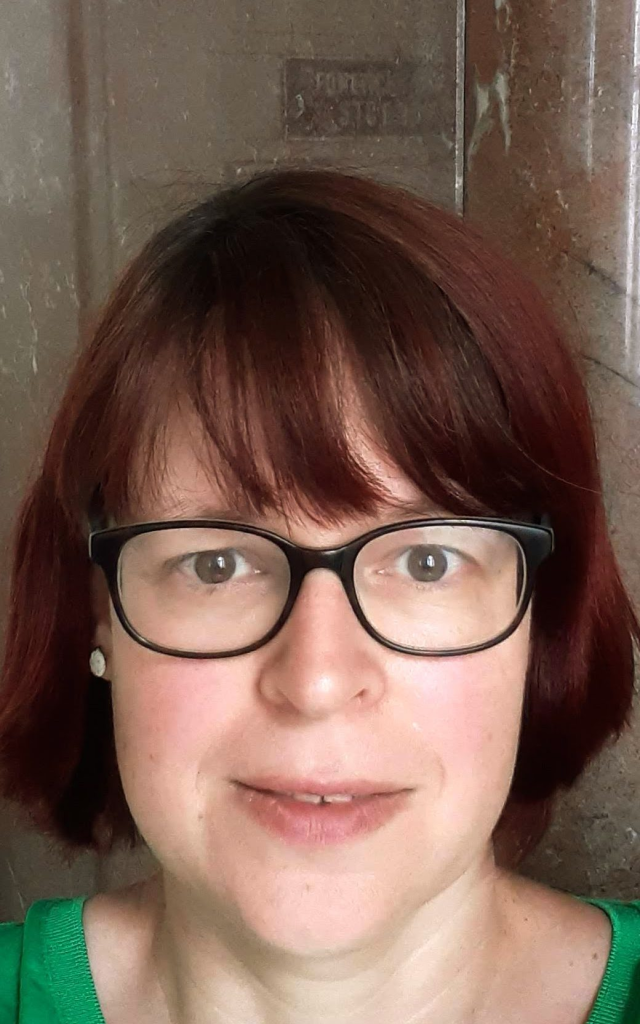
Tanja Kocjančič Antolík is a researcher at the Institute of Phonetics at the Faculty of Arts, Charles University. She is mostly interested in speech production, especially acoustic and articulation speech characteristics in foreign languages and speech disorders. Her other interests include research into the usage of ultrasound imaging to help teach correct pronunciation in foreign languages and to fix pronunciation in speech disorders in children and adults.
Kodadová Ludmila
Why do I teach Czech for foreigners?
Because teaching Czech to students who have a different linguistic background is always a challenge. And since this challenge constantly makes me ask myself, “Why do we actually say it this way?”, I try to better understand Czech from my perspective as a native speaker.
Why am I at the Summer School?
Because I enjoy meeting inspiring people – and the Summer School in Prague is full of them.
How will you recognize me at the Summer School?
By the book I’m always reading and keeping close at hand. And also by my sneakers.
Kopřivová Marie
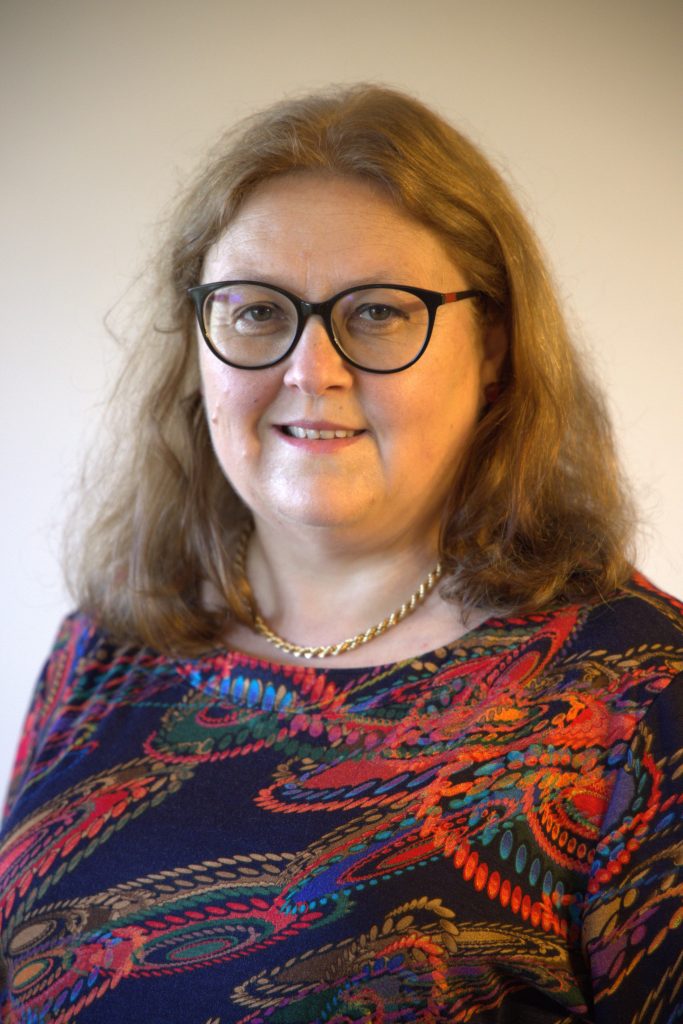
Czech for foreigners gives me a new perspective on my own language as well as on other languages, on the process of learning them, and on how communication works.
I really enjoy watching my students make progress, and I find great joy in the process of understanding culture and the world through language. It’s definitely true: As many languages you know, as many times you are a person.
I’m at the Summer School because Prague is beautiful in the summer, and it’s an unforgettable experience to be there with people who want to learn Czech. It’s a great adventure.
You’ll recognize me at the Summer School as the shortest among the teachers. Just line them all up by height, and I’ll be at the end. But otherwise, I’ll try to wear my orange ladybug (pin or accessory).
Lacina Štěpán
Why do I teach Czech for foreigners?
I don’t really focus on teaching Czech to foreigners anymore—or rather, it’s no longer my daily bread, with the exception of the Summer School. However, studying it definitely helps in my profession as a high school teacher, where it gives me a view of the Czech language system “from the other side.” This allows me to better explain how language works, especially to small children. And it works the other way around, too: teaching Czech to native speakers enriches the way I teach it to foreigners.
Why am I at the Summer School?
When I was twenty-something, I saw it as a prestigious thing, a way to feed my twisted ego, and a chance to impress girls and students. Today, it’s mainly a break from the everyday school routine. A break spent among amazing, open-minded students and colleagues. A break during which I get to spend time alone (without kids and wife) in Prague and do whatever I want. So, my participation in the Summer School is purely for social and therapeutic reasons. 🙂
How will you recognize me at the Summer School?
You won’t—because, like a ninja, I can make myself invisible. Follow the scent instead: Old Spice, beer, and freedom…
Náměstníková Světlana

Why do I teach Czech for foreigners?
Czech is a language that has fascinated me since childhood – I decided to study it when I was eight. I have always enjoyed discovering its structure and beauty, and I’m happy to share this joy with people from all over the world. Teaching Czech for foreigners allows me to combine language, intercultural communication and human contact – three things that fulfill me.
Why am I at Summer School?
For me, Summer School is a unique place where people with a great interest in Czech meet. I am here because I want to help students discover the language while getting to know their Czech surroundings.
How will you recognize me at Summer School?
I have a small figure and pretty earrings.
Pastoukhovitch Elena
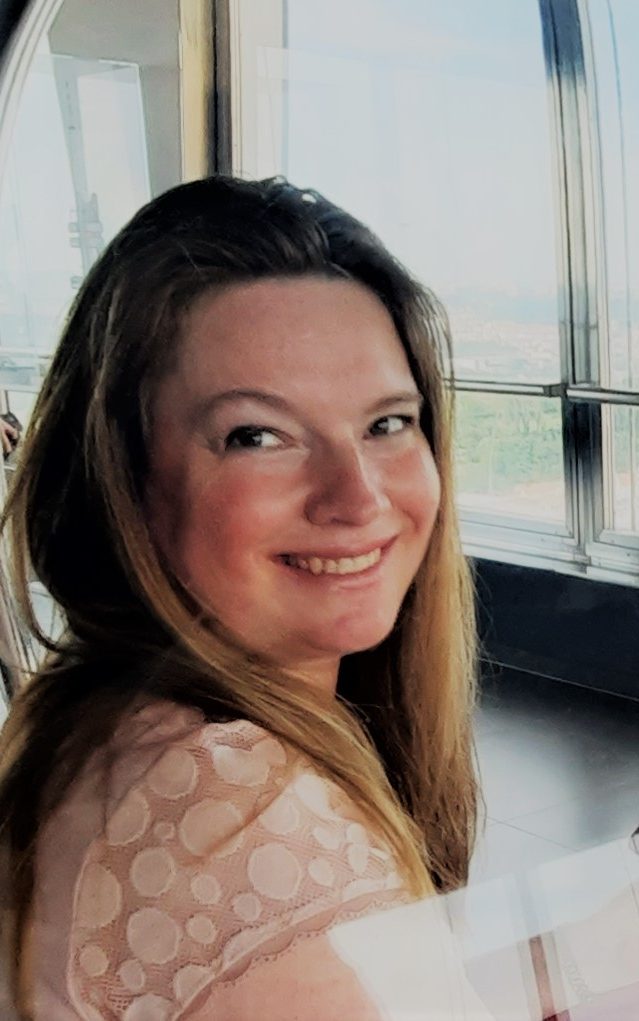
Why do I teach Czech for foreigners?
I teach Czech for foreigners mainly because I enjoy helping people from other countries find their way around the language and life here. Czech is not easy – and when I see that thanks to me, someone can handle their first conversation in a shop, a job interview or just chat with their grandmother with a smile on their face, it’s all worth it.
Why am I at Summer School?
I teach at summer school because I like meeting people from different parts of the world. The summer school has a great atmosphere: everyone is open, motivated and usually in a good mood. I’m also fascinated by how everyone comes with a different story, culture and motivation to learn. It’s not just about grammar – it’s about people, communication and mutual understanding. And last but not least – I am always learning something new thanks to it.
How will you recognize me at Summer School?
A smile is my distinguishing mark. With my students, I feel younger than the age on my ID card. Their energy, ideas, and desire to learn always recharges me. And I believe that a good mood is the best helper when teaching.
Pavlíková Karolína
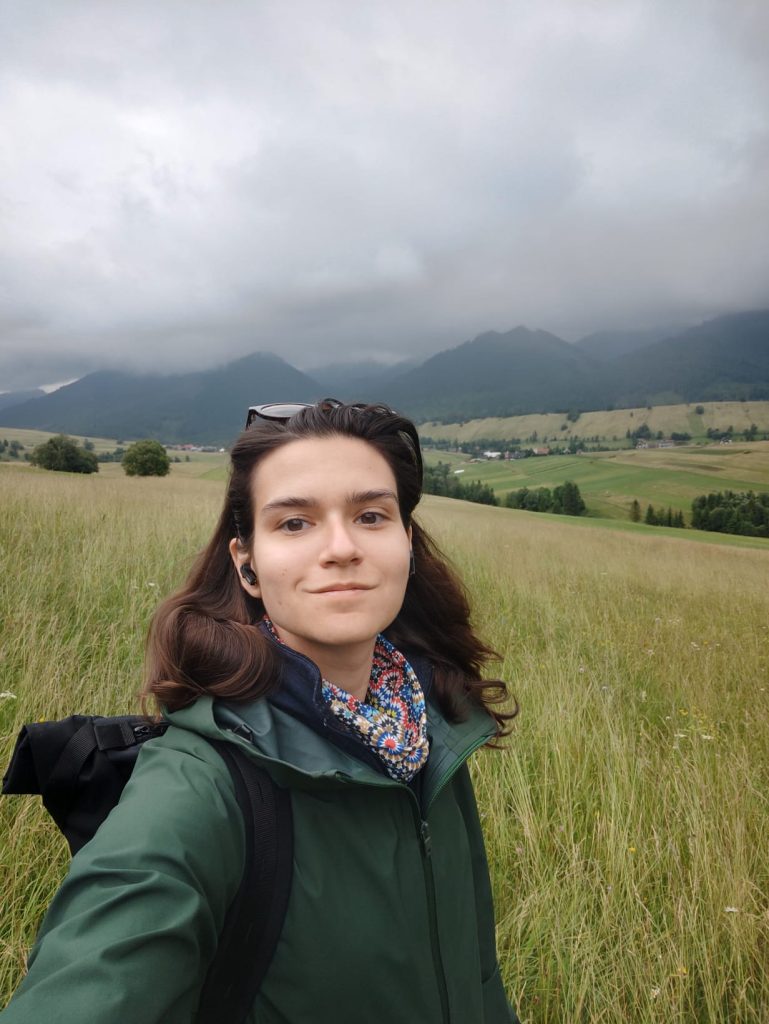
I appreciate how speaking foreign languages allows me to get to know other people and cultures in a deeper way. That’s why I teach Czech to foreigners wherever I get the chance, be it at the university or in a café. This will be my third time at the Summer School, and I’m already looking forward to new friendships, trips, and litres of RedBull shared with the assistant team.
I studied Teaching Czech as a Foreign Language and French, which allowed me not only to explore other Romance languages but also took me to Geneva for an Erasmus stay and later to Brussels for an internship at the Czech Centre. But what I enjoy the most in my free time is drumming on Okinawan drums at festivals with friends from both the Czech Republic and Japan – so here I am learning Japanese.
When I’m not studying, teaching or drumming, I enjoy hiking in the mountains, experimenting in the
kitchen, reading, and playing board games or ping pong.
Pešička Jiří

After grammar school, I graduated in English and German at the Charles Unviersity’s Faculty of Arts. I’ve been teaching since 1978 — first 8 years at a business secondary school, and then, after 1989, I’ve been teaching (now as an external teacher) at the Institute of Czech Studies, Faculty of Arts, Charles University. I’ve led many practical seminars there over the years. Altogether, I’ve spent 6 years teaching Czech as a foreign language abroad, at universities in Berlin, Frankfurt and Yongin (South Korea). I also spent some years as a member of a small team creating A Frequency Dictionary of Czech (published in 2007). For over 30 years, I’ve been teaching at the Summer School of Slavonic Studies. I enjoy history and music, which I also try to make.
Poledníková Marie
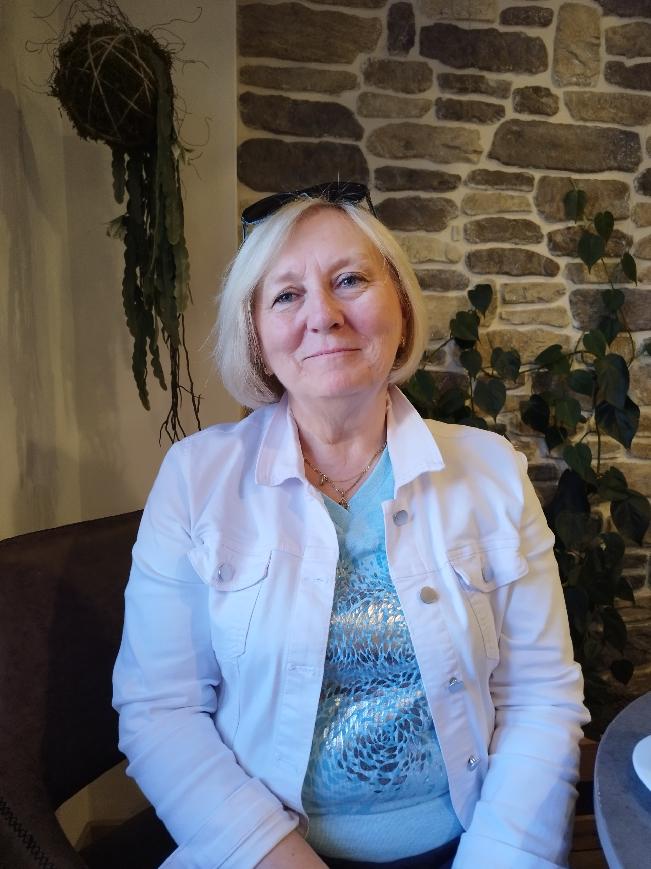
Why do I teach Czech for foreigners?
I can’t imagine life without chalk, a blackboard, and students. I enjoy playing with language—grammar and literature alike. For a teacher of the Czech language, there’s no better job than sharing her mother tongue with students who speak other languages.
Why am I at the Summer School?
Because it’s the best. I can’t imagine summer without the Summer School. I love the time when “the whole world” comes together in Prague and speaks Czech… and I get to be part of it!
How will you recognize me at the Summer School?
BB – “blondýna s brýlemi” (a blonde with glasses)… and headphones, because I’m always listening to audiobooks. I try to speak loudly and slowly, and I’ll have a name tag!
Posavec-Malok Dean
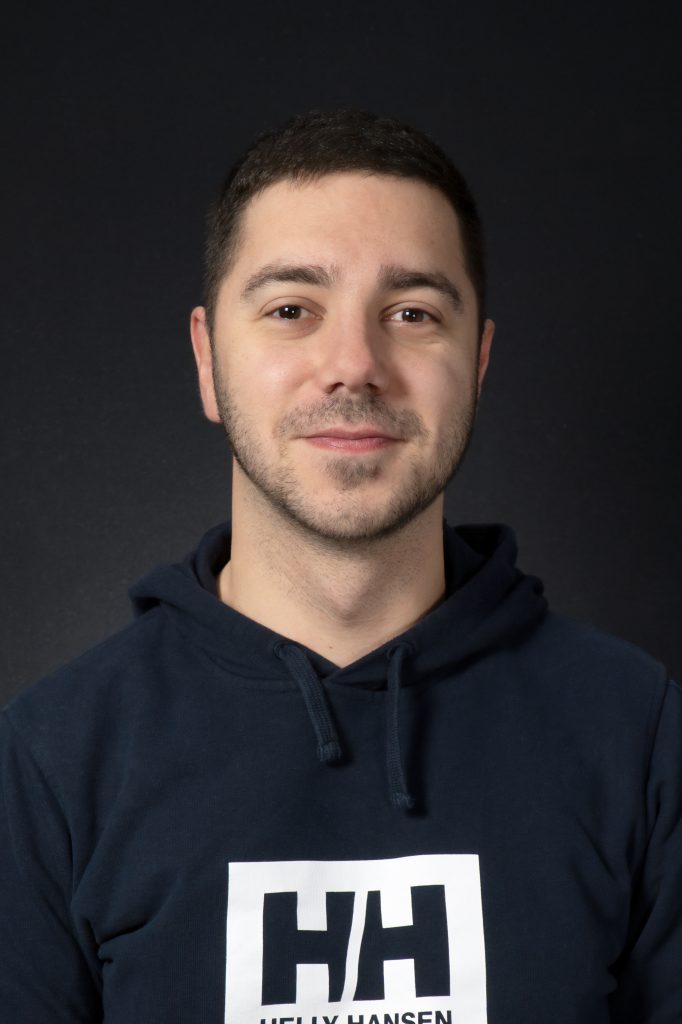
I enjoy teaching, especially foreign languages.
I can empathize with students because I was once on the other side of the classroom myself. That’s why I understand how challenging—but also enriching and fun—learning a foreign language can be. I’m fascinated by the meeting of languages and cultures, and through teaching Czech to foreigners, I get to be part of all that.
I’m at the Summer School because I enjoy meeting new people who are just as enthusiastic about language learning as I am.
And how will you recognize me?
I’ll probably be the one enthusiastically telling you how AI can help you learn Czech. Also—look for the t-shirt with a kitty on it.
Slowik Miroslav

Why do I teach Czech for foreigners?
I am a linguist and I love my native language. I admire all those who want to learn it, even though it is very demanding. I studied Czech twenty years ago and since then I have been dedicated to everything related to it. We Czechs live in the Czech language and have a specific way of experiencing the world. I like to share this with the foreigners I have in my courses.
Why am I at Summer School?
I have taught at Summer School several times now and it has always been a pleasant summer spent in the beautiful surroundings of the center of Prague, with wonderful people. I really enjoy my job as a teacher.
How will you recognize me at Summer School?
You will recognize me at Summer School because I am in a good mood, and when I speak, you can hear me even through closed doors.
Škodová Svatava

Mgr. Svatava Škodová, Ph.D., works at the Institute of Czech Studies at the Faculty of Arts, Charles University, and also at the Department of Czech Language and Literature at the Technical University of Liberec. She received her PhD in philology at the Institute of Czech Language and Theory of Communication (ÚČJTK) at the Faculty of Arts, Charles University (Pseudo-coordination in the syntax of contemporary Czech). In her research and teaching practice, she focuses on Czech grammar from the viewpoint of Czech as either a foreign or first language. She participated in creating many Czech learning materials for foreigners. She also took part in creating the Czech learner corpus CzeSL and the phonetic app ProCzeFor. Furthermore, she participated in making Czech Radio programs available with automatic transcription in parallel with the audio as part of cultural heritage preservation projects. She is interested in anything related to non-native speakers’ Czech, but also in other linguistic deviations.Further details at: https://ubs.ff.cuni.cz/cs/o-katedre/vyucujici/mgr-svatava-skodova-ph-d/
Vališová Pavlína
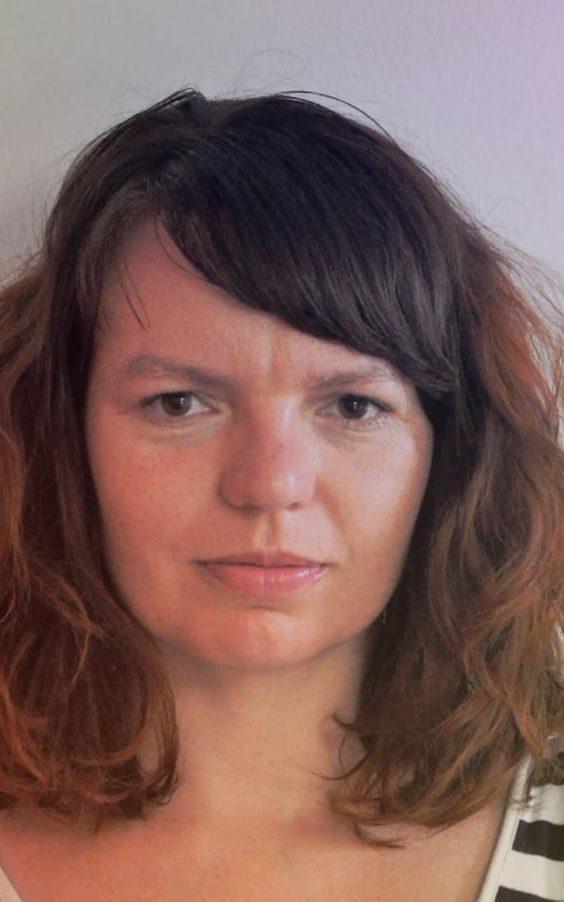
Why do I teach Czech for foreigners?
I have been teaching Czech to foreigners for eighteen years and I still enjoy it. I like to explore my mother tongue in detail and try to look at it through the eyes of non-native speakers. I’m interested in grammar, conversation games and original texts.
Why am I at Summer School?
I keep returning to Summer School because of its unique atmosphere, where people from different parts of the world meet and their interest in Czech connects them.
How will you recognize me at Summer School?
You will recognize me by my speed, enthusiasm and messy hair.
Veroňková Jitka
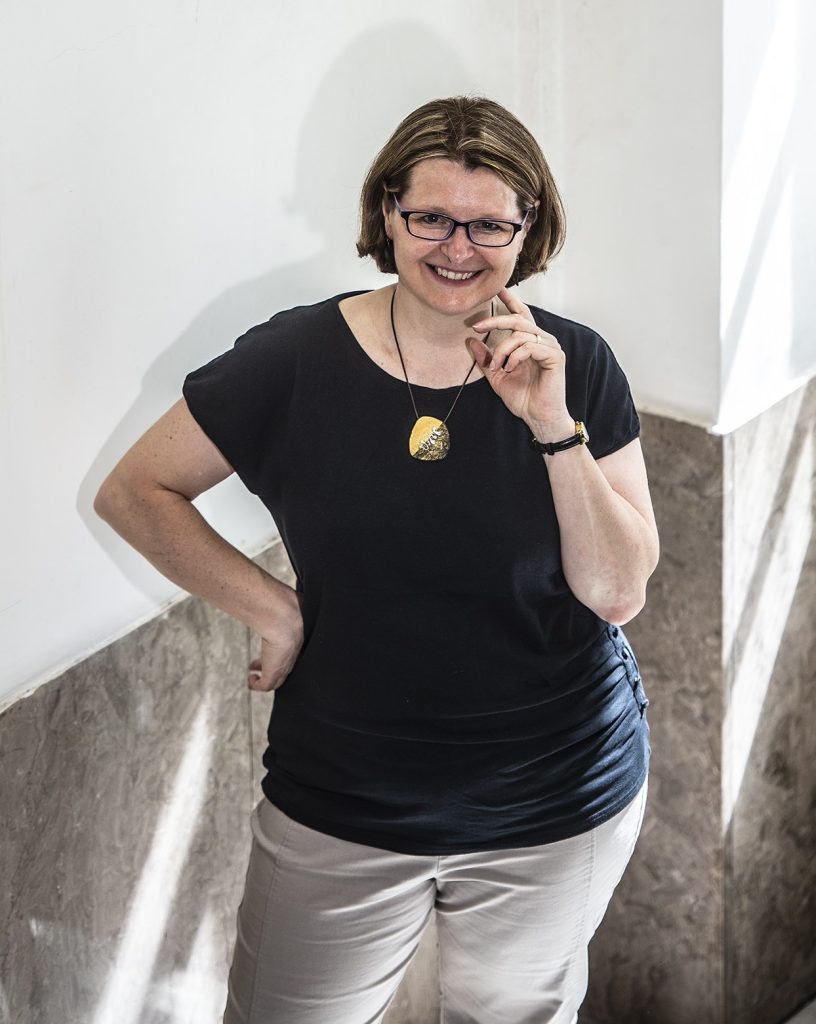
Jitka Veroňková works at the Institute of Phonetics, Faculty of Arts, Charles University, in Prague. Her research focuses on the sound structure of language and speech (with a focus on Czech). She teaches courses at the Phonetics and Czech for Foreigners programmes. Her research interests include Czech prosody and the sound structure of Czech spoken by foreigners, and she also focuses on the culture of spoken language. She is responsible for the phonetics module at the Summer School of Slavonic Studies and for the Czech Studies programme at the Faculty of Arts, Charles University. She co-develops teaching materials for the Czech for Foreigners courses and is the head of the ProCzeFor (Pronunciation of Czech for Foreigners) project.
Vinš Ondřej

My name is Ondřej Vinš, I’m working on a PhD in Czech literature and I teach written Czech for the Deaf. I’m interested in humor from various angles, for example what it says about our world view or how it reflects our historical experience. I taught foreigners for two years, so I also like to learn about the humor of other nations, cultures, and ethnicities.
Vojvodić Sonja
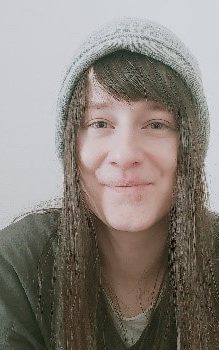
Why do I teach Czech for foreigners?
I have been teaching Czech for foreigners since 2019. The Czech language is one of my greatest passions in life. You’ll often hear me say in various contexts that it is the most beautiful language in the world.
Why am I at Summer School?
Summer School is like a large Czech language game room, a place for linguistic, cultural, gastronomic and cognitive fireworks that last all day. That is why I always like to come back here. In the classroom, I like to deal with communication and the sound aspect of the language the most. I bring cheerfulness and playfulness to the students.
How will you recognize me at Summer School?
When I am not teaching, I’m usually running around the faculty building.
Vondráčková Pavlína
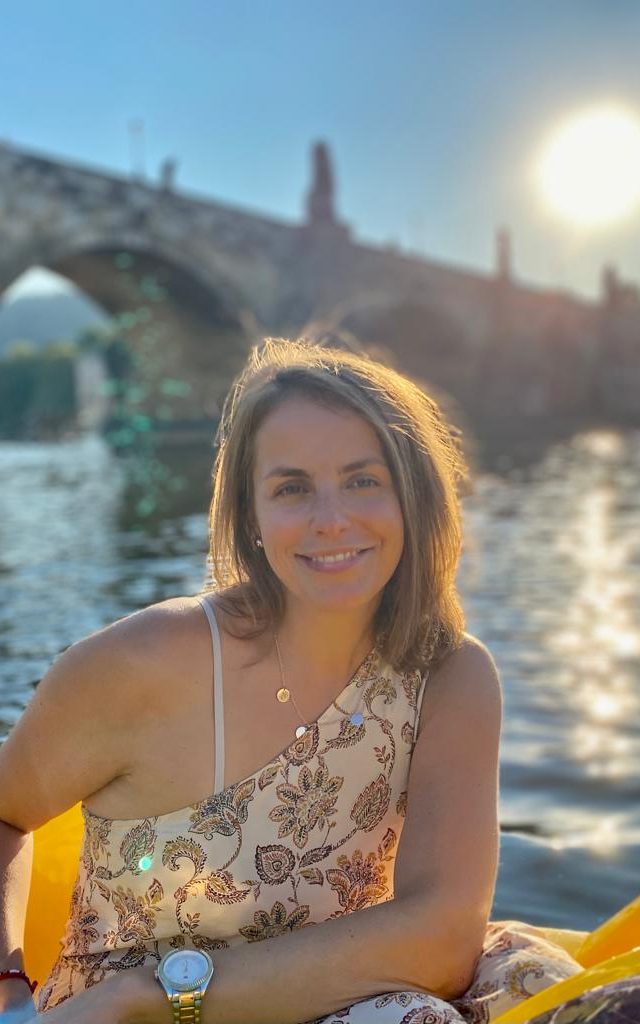
Why do I teach Czech for foreigners?
Because it’s a job that allows me to get to know people from all over the world, their culture, language and way of thinking. It’s work that isn’t monotonous for me and that I still enjoy even after over ten years.
Why am I at Summer School?
It’s become such a tradition. Summer without LŠSS wouldn’t be summer. 🙂
How will you recognize me at Summer School?
You will definitely recognize me. 🙂
And if not, then by the photo that I have in my LŠSS lecturer profile, and also by the red bracelet that I brought back as a souvenir from my work stay in China. I wear it on my left hand next to my watch and believe that it brings me luck..
Vučka Tomáš
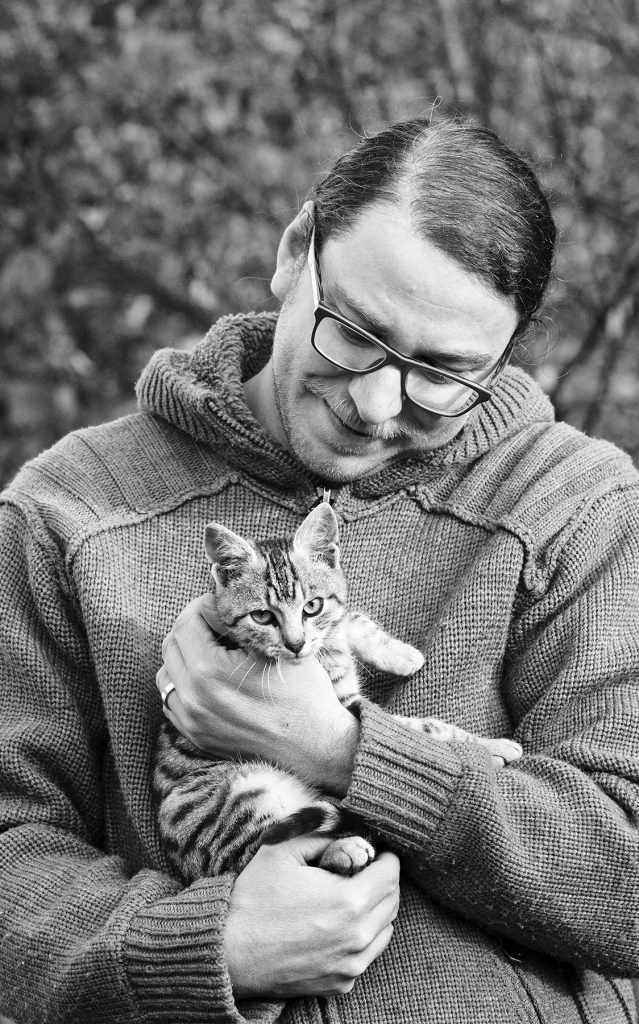
Zasina Adrian
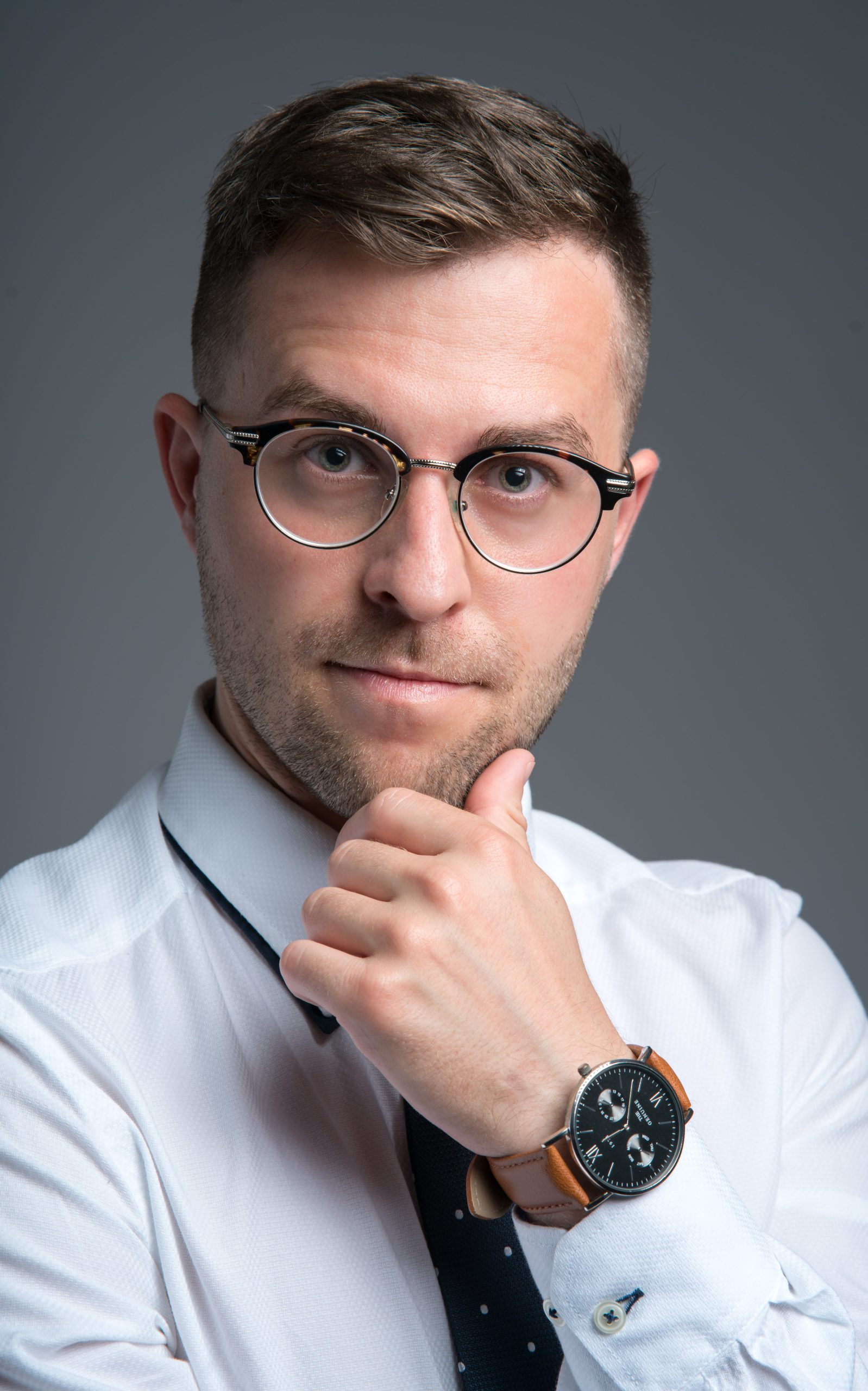
Why do I teach Czech for foreigners?
Czech is a challenge, which is why I admire all foreigners who decide to take it on. I’m happy to support them in this and introduce them to various modern teaching methods. I enjoy sharing my knowledge with others and watching myself continually improve as well.
Why am I at the Summer School?
The Summer School has always been a unique environment for me – a meeting place for people from all over the world who are learning not just the language, but also from each other. As a former participant, I know how much this experience can change one’s perspective. These days, I can hardly imagine summer without the Summer School.
You’ll probably recognize me by my enthusiastic conversations about language corpora and linguistics.